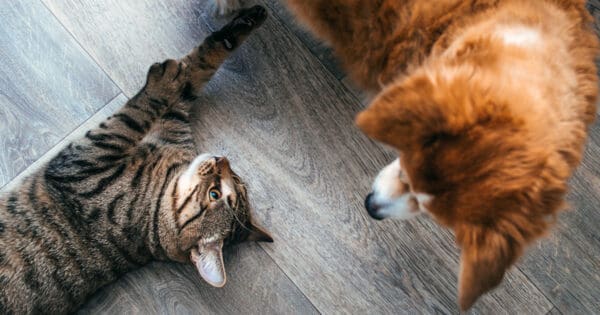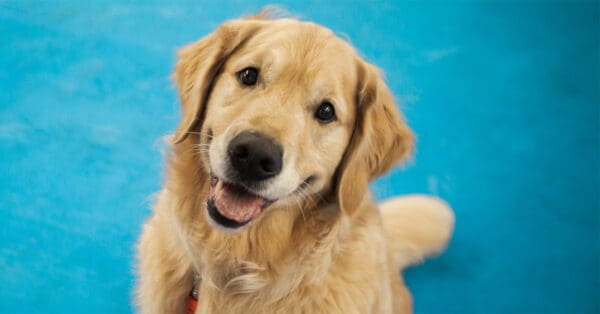
11401 NE 195th St. Bothell, WA 98011
(425) 486-9000 PHONE (425) 486-9002 fax
Notice: Below care sheet is from 2016, and may not reflect up-to-date care information.
Chinchillas are fun and unique pets that can live up to 20 years with good care. They are herbivorous rodents similar to guinea pigs & rabbits, but have several unique differences.
Natural History and Biology:
Chinchillas are rodents that originated from the Andes Mountains of South America. They are now considered nearly extinct in their natural habitat. In the wild, chinchillas are burrowing animals that live in colonies, known as “herds.” They eat mainly grasses and some seeds, and drink relatively little water. Chinchilla fur is very dense (up to 90 hairs per follicle), and due to selective breeding comes in a variety of colors. The natural color for a chinchilla is a steel blue-grey.
Chinchillas weigh a little over one pound, with females being slightly larger than males. Sexing of chinchillas is done by comparing the length from anus to genital region; males have a longer distance comparatively. Both male and female chinchillas make good pets.
Chinchillas are crepuscular, meaning that they are most active at dawn and dusk. They can be housed in pairs or groups, but interactions between animals should be monitored, as sometimes individuals may fight with each other. This is displayed by growling, teeth chattering, and urine spraying. Increasing cage size and the number of hide boxes is the starting point to solve this problem.
Chinchillas have specialized teeth that grow throughout their life, and must eat a diet high in roughage such as hay in order to keep their teeth trimmed to normal lengths. Normal chinchilla feces should be formed and slightly moist. Just like rabbits, chinchillas need to ingest their softer, nutrient-rich night feces (cecotrophs) to obtain important vitamins.
Housing:
Chinchillas are active, needing lots of space to jump and climb. Cages should be taller than they are wide, with multiple shelves/levels for the chinchilla to utilize, and as large as possible. Walls should be constructed of powder coated wire to allow good ventilation, and flooring should be solid. A solid hide box should be provided for the chinchilla to sleep in, as this will help him/her feel more secure. Chinchillas should be allowed supervised time out of the cage each day to provide exercise and environmental stimulation.
Appropriate bedding for chinchillas includes fleece blankets, towels, and recycled paper products such as Carefresh. Wood shavings should be avoided, as their aromatic nature can cause respiratory illness in small mammals, and splinters can result in injuries. The cage should be cleaned regularly to keep your pet healthy.
As Andes Mountain natives, chinchillas do very poorly in hot weather; their accepted temperature range is 60-70° F. They can develop heat stroke and die if temperatures exceed 80° F. Chinchillas need a low humidity environment (40-60%), and prefer a 12 hour light cycle (12 hours of light, followed by 12 hours of darkness).
An important behavior in chinchillas is dust bathing to clean the fur. This need can be met with commercial chinchilla dust. Offer this dust daily in a pan deep enough for your pet to roll in, and then remove the dust to avoid fecal contamination.
As previously mentioned, chinchillas teeth continually grow, and they need objects to gnaw on to control incisor growth. Branches and wood blocks are some of the recommended chew toys. Making sure that your chinchilla eats primarily hay (see below) will help the teeth in the back of the chinchilla’s mouth stay appropriate lengths.
Daily Diet:
Chinchillas are strict herbivores. Their daily diet should consist of primarily of unlimited grass hay (such as timothy or orchard grass), in addition to 1-2 tablespoons of commercially available chinchilla pellets (Oxbow, Mazuri, etc.). Limiting the amount of pellets will train them to rely more on hay for food, which is very important for digestive health and proper tooth management. Chinchillas do not need supplementation with fresh fruits or vegetables, as their gastrointestinal tract is not designed for rich foods, and this can lead to digestive upset. Any dietary changes should be gradual to prevent complications. Consult a veterinarian before changing the diet.
Treats should make up less than 10% of the total diet. Sugary treats such as raisins should be avoided, as chinchillas are prone to diabetes. Examples of acceptable treats include seeds, oats, rose hips, dried herbs, sugar-free cereal such as shredded wheat or plain Cheerios, and Oxbow Simple Rewards treats.
Water should always be available, and can be provided in a sipper bottle or a water bowl. The water source should be emptied and refilled daily with fresh water to prevent bacterial growth.
Handling:
Most chinchillas will tame in quickly, especially when positive reinforcement with treats is provided during all interactions. The proper technique to pick up a chinchilla is to gently lift underneath the chest and fore limbs while supporting the rear end with the other hand. Chinchillas are normally very docile, and rarely bite, but can be skittish if they have not been handled routinely.
If frightened or handled roughly, chinchillas will release a portion of their hair (called “fur-slipping”); the hair will re-grow in 3-5 months. Urine spraying is another defense mechanism. These behaviors can be avoided by not forcing a chinchilla to interact with you and respecting their space.
Common Health Problems:
ANY abnormal symptom in a chinchilla could be an emergency, as they tend to hide signs of illness until they are extremely sick. Please contact your exotic veterinarian immediately if you notice any changes in your chinchilla’s attitude, appetite, or activity level.
NOTE: there are several types of medications that are dangerous to give to chinchillas, so always consult with an exotic animal veterinarian before giving your chinchilla any treatments.
- Dental disease (“Slobbers”) – this is the most common medical problem seen in chinchillas, and is usually caused by teeth malocclusion (abnormal alignment) and overgrowth. This may be caused by a genetic predisposition, or by improper diet. Symptoms include drooling, pawing at the mouth, weight loss, and not eating. Dental disease is painful, and needs medical attention as soon as possible.
- Digestive disorders – diarrhea, ileus (GI stasis), abdominal pain, etc. Chinchillas should eat and produce normal stools throughout the day. If this is not occurring, it is a sign that something is seriously wrong. There are many potential causes, including respiratory disease, dental disease, organ dysfunction, infections, and toxin exposure. Any chinchilla that has stopped eating for 12 hours or more should be seen by an exotics veterinarian immediately.
- Respiratory distress – usually due to infections, heart disease, or heat stroke. This is always an emergency!
- Overheating – If environmental temperatures rise above 80° F, or high humidity is present, chinchillas will pant, drool, collapse, and even die. Immediate treatment is a cool water bath. A veterinarian should be consulted immediately.
March 30, 2015
Content of this Care Sheet Courtesy of:
The Center for Bird and Exotic Animal Medicine
11401 NE 195th St. Bothell, WA 98011
(425) 486-9000 PHONE (425) 486-9002 fax



